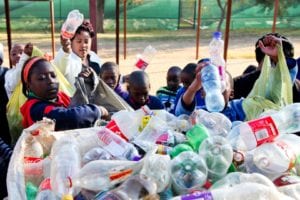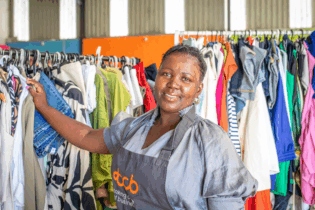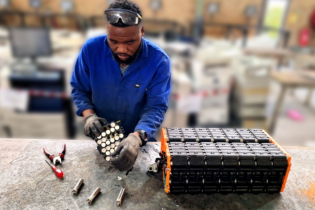Newcastle and Tembisa recycling facilities
Two such cooperatives have already made a difference in the Newcastle and Tembisa communities. In Tembisa, Salphy Nkoane has become the chairperson of the Matshupatsela Cooperative, a recycling entity which she started. The cooperative has grown in number to a total of 18 people and was made possible with the financial assistance worth R17 million from the City of Ekurhuleni and the European Union. The Matshupatsela Cooperative has fostered a trend in the community and has enabled two other benefitting cooperatives, the Tiyisetsane and Imbalenhle, which feeds over 100 families, to operate from its premises.Cooperatives and job creation
Waste management experts have said that cooperatives are crucial in the community as through recycling, gas emissions are reduced and greens jobs are being created. Ndosi Shongwe from Ekurhuleni’s mayoral committee emphasised that the municipality was on board with helping get the cooperative off the ground as it was “about creating jobs and opportunities” for the members of the Tembisa community.Similarly, a R19 million waste buyback centre recently became Newcastle’s newest edition on its recycling front. The centre was part of the Department of Environmental Affairs’ Environmental Protection and Infrastructure Programme.
The department’s deputy minister Barbara Thompson reiterated the opportunity that the centre provided for job creation. “The implementation of these projects created 240 job opportunities to the members of the local communities,” she said. The concept of cooperatives is not new, however the trend has only gained accelerated attention and funding in recent years. In 2012 Nokwanda Sotyantya joined the local recycling cooperative from the Imizamo Yethu informal settlement outside Cape Town. Sotyantya also belongs to the country’s first group of small business entrepreneurs who have benefited from the government’s move towards a green economy. Back then, local municipalities in conjunction with the National Environmental Management Strategy aimed at achieving a number of things that would create a green economy, but also planned to create 300 000 jobs within a decade in this sector. In 2012, Sotyantya was struggling to support her family, however after joining the cooperative she started earning an average of R2000 a month which helped her to start taking care of her children again. “The more people become aware of the benefits of recycling, the more rubbish gets dropped off at the Hout Bay waste centre,” Sotyantya said. “For me, that translates into more money.” The Hout Bay Recycling Cooperative’s managing director Iming Lin said it focused on “creating jobs that help to minimise waste, increase renewable sources, protect and restore local biodiversity, reduce energy and water demands, contribute to the economy and create a local food network”. Soon into the Hout Bay Recycling Cooperative’s operations, its work was recognised by the United Nations Environment Programme (UNEP) as it was nominated for one of the 2011 sustainable development awards. UNEP spokesperson Nick Nuttall said that going green did not mean “it’s nice and fluffy”. “There are some hard economic figures behind it too,” he said, and reiterated that despite such challenges, recycling cooperatives provided “more and more examples of small businesses solving big problems and creating livelihoods,” through job creation.







